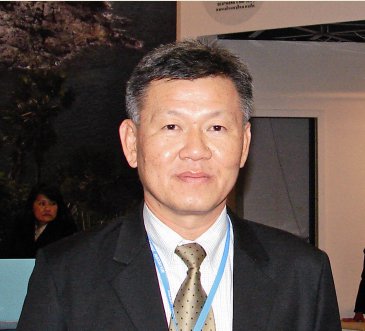Hotel supply cap “pointless’ for Phuket

PHUKET: Hotel operators are lukewarm to an effort by the Thai Hotels Association to lobby the government to limit the number of new hotel licenses it issues, saying the real problem is the number of accommodation establishments that operate illegally.
Following reports that the association planned to lobby returning Tourism and Sports Minister Chumpol Silpa-archa to help develop the industry by limiting new hotel licenses in popular destinations, Phuket Tourist Association President Somboon Jirayus doubted such a measure could be effective in Phuket under current circumstances.
The main obstacle is the number of guesthouses, serviced apartments and similar establishments operating as hotels on the island without licenses, he said.
He estimated there were “over 50,000” rooms in such establishments – surpassing the number of rooms in registered hotels.
As of June 2011, there were 43,571 registered rooms in Phuket, according to Tourism Authority of Thailand statistics.
Asked how such a situation could have developed he said, “It’s hard to explain. I guess you could say we do it ‘Thai style’. Those businesses do not comply with regulations, they just build and open.”
As the Interior Ministry issues licenses, any effort to crack down on illegal operators would require action from them through the Governor’s Office in each province, he said.
If they could solve the “underground hotel” problem, the idea of limiting the number of new licenses would be an attractive one, he said.
“I think we have to accept the fact that the room supply in Phuket now surpasses demand, especially during the green season. So I think the idea to limit the number of new licenses is interesting, but I think you would need a committee to present all the facts relevant to the situation.
“It would be good if the government could do it, but it should match the actual supply and demand situation,” he said.
Rival destinations have benefited from similar measures. Authorities in Bali, for example, had successfully limited the number of new hotel licenses issued in certain areas, such as the tourist-busy Kuta Beach.
Whether or not new licenses should be issued is considered by a review panel after a set period of time, such as every three years, he said.
Suchart Hirankanokkul, president of Thai Hotels Association Southern Chapter and managing director of Graceland Hotel, said he was aware of the issues involved but would not be attending the meeting in Bangkok.
The chief problem of the proliferation of unregistered accommodation establishments was not that it created an oversupply situation, but that it eroded standards and compromised safety, he said.
“There are simply no controls on serviced apartments and guesthouses operating illegally as hotels,” he said.
The government should come up with a suitable permitting system for such venues to ensure they are at least equipped with basic safety systems. A major fire disaster in such an establishment would ruin Phuket’s hotel industry reputation globally.
“Prospective tourists would just hear the word ‘hotel’. They would not know whether or not the hotel was legally registered,” he said.
Many illegal hotels on the island were built as far back as 30 years ago and the structures do not meet building code requirements. Complete reconstruction would be cost prohibitive, so they opt not to apply for permits at all, he explained.
“But to order them to close would be too cruel,” he said.
Instead, the government should allow a “grandfather clause” to allow them to operate within the law, he added, insisting that the Thai Hotels Association did not want to limit new business investment.
“We are not opposed to business competition, but there must be standards in the industry. We want to bring the illegal establishments into the system so that we all operate under the same laws.
“Otherwise, legally-registered hotels will be forced to continue to operate at a competitive disadvantage since all those other operators don’t have to pay tax or train staff according to the Hotel Act. This allows them to undercut legal hotels on pricing,” he said.
The problem would be a topic of discussion at an upcoming meeting with the governor, he said.
— S Fein & J Upatising
Latest Thailand News
Follow The Thaiger on Google News:


























